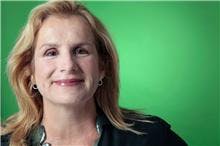Evidence, Restraint and Blogging
Jan 21, 2015
First story
Hi, everyone.
For those of you unable to attend the calls this week about Module 3 and writing an Op/Ed, I wanted to clarify some points I made on the calls in addition to the curriculum materials. All of these are important and will supplement what you have already seen in the materials.
Evidence is critical.
Opinion is bolstered by different kinds of supporting evidence, and is extremely powerful when it arrives in groups of three. Think of your evidence as a trifecta of back-up, a winning bolster to any argument. One group of evidence can be specific statistics, studies or research you use to back up your statements, your Big Idea or main argument. This is the official source side. Another kind of evidence can be unofficial sources. This includes personal observation, personal anecdotes or experience, or a collection of experiences from the news that you have gathered of citizens or non-officials' experiences. The third kind of evidence can be overview, expert quotes or commentary from a source about the bigger picture. This can include persons of authority making statements to back up your argument, or it can even be historical. These comments can be taken from literature, history, popular culture or any realm as long as it adds to the understanding of the issue as a whole. Think of it as a landscape view of the issue, as opposed to a close-up view with personal anecdotes and unofficial sources. The official sources offer a medium shot view. In addition to the close-up and medium shot sourcing, you want to get this kind of landscape or overview commentary evidence in order to provide context. Often stories have only official and unofficial types of sources, but a contextul perspective is helpful. These three kinds of evidence work together to make your voice undeniably effective and influential.Restrain from the use of \"I.\"
Yes, this is your opinion, but to write an op/ed that continually uses the phrase, \"I believe, I think, I know, I saw, I watched, I understand...\" tends to get repetitive and dilutes the power of the statement. Just make the statement. We know this is your opinion, we want you to make a claim to your argument without redundancy. It makes for more clear and fresher writing. It keeps people listening. It makes it not about you as much as it makes it about the issue. For example, writing a piece on the growth of domestic violence in teens in the United States, it would be much more powerful to state: \"The increase in domestic violence incidents for American teens ages 13-17 speaks to a culture that does not value our girls.\" That is stronger than, \"I believe the increase in domestic violence...\" Your presence should be implied, not overt. Spend the facts, save the words. Here it is important to remember to spend the evidence, save the words and try to keep from literally inserting yourself in the form of the word \"I\" into your opinion pieces.Blogging is different.
There are more than 135 millions blogs across the globe, and much of it is ranting noise, inconequential commentary about individuals' personal lives. Anyone can blog about anything. In that number, perhaps there are 1 million blogs written by people-- journalists and citizen journalists--who back up their statements with research, reporting and evidence. On the other hand, most all mainstream media, independent media and leigimate outlets have content that can be substantiated. We are asking you to add your opinion to the conversation of vetted, evidence-based opinion that has public value. Some blogs can be evdience-based and have great value. But not all blogs, actually quite a small percentage. So the two are quite different. With few exceptions (as in the case of non-democratic and government-controlled media), opinion journalism has solid research, anecdotes and overview-- the trifecta of evidence-- in a framework of a distinct point of view to support a cohesive argument.
Thank you for your efforts. I look forward to hearing from you and reading your work.
Michele Weldon




